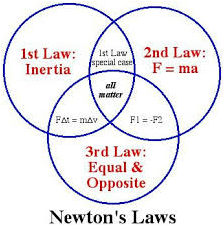 I just had a very interesting discussion with a former associate of mine this morning about marketing. My initial statement was that marketing is an art. Immediately, he disagreed with my statement. He contended that marketing is a science. So, is marketing an art or a science? Having been educated in a science discipline, I had for a long time held the classical view of a science having the characteristics of having immutable laws : If I held a ball and released it from my hands, it would fall towards the ground with an acceleration equivalent to some 9.81 N/kg (Earth's gravitational acceleration). Of course, given this worldview of mine, I would expect that in marketing, if you could feed data into a 'machine' and it would spew out the answers to your business marketing problems, then it means it behaves predictably just like the gravitational acceleration. Unfortunately, this is not the case. There are so many variables in the real world that business marketing problems are not so easily solved in this manner - what works in some cases may not work in others - even when the variables appear to be the same. On the other hand, marketing is not some voodoo stuff either. There are certainly some clear ideas, principles and methodologies which hold true (mainly) within the discipline. Furthermore, the term 'marketing' is so broad that it would be interpreted differently by the practitioners of the various niche areas which fall within the umbrella of 'marketing'. For example, for those in the advertising industry, they would necessarily, narrowly interpret marketing within the context of the advertising campaigns, plans and advertising material such as banners, brochures, videos, soundbites etc. On the other hand, those who are in creative arts would argue that the crafting of visual imagery and good copy-writing is really fundamental to marketing. So, is marketing an Art or a Science? It would be up to you to interpret. But I would like end this with a thought - whether it is an art or a science, what marketing seeks to do is to ultimately create in the mind of the consumer the desire for a product or a service which he will then be in a way enticed to purchase. Therein lies the market economy. This blog was first published in Linked In on 4 November 2014. To read the original article, please click here.
Poh S. Lim Being someone who is avidly into social media, I have found that my postings, whether it is on Facebook or Linked In or Twitter can reach a lot more people than if I was communicating with others on email or through other more traditional means such as the telephone. Indeed, the technology for social media and outreach to the masses is already here and is changing the way we communicate. For the first time in history, any individual with an internet connection is able to reach the masses around the world and push his message, his story or his agenda to everyone who can be reached via the internet. All this can be done within minutes and with a ridiculously low budget. This indeed, is the disruption in mass communication. Just only decades before, the only way to reach to the public would have been through broadcast over the airwaves and if you did not own a radio or television station with all that expensive broadcast equipment, you would not be able to do this. Big corporations with budget for advertisement would be the only ones able to reach out and market their products to the masses. Now all this has changed. However, as Peter Parker's gentle Uncle Ben said to him in the movie, "Spiderman", "With great powers come great responsibility". So as the media disruption has started, it is very important that those who now hold the power of mass communication, each and every individual who is able to tweet or blog on the internet is able to reach millions, and they should exercise discretion over their power to influence others. This capability to transmit information in a flash, and to communicate instantly with massive numbers of people, therefore also increases the risk of communicating mis-information which can be a source of disruption to society at large. Other than that, political views which carry extremist messages can be propagated to large numbers which the authorities find difficult to counteract. Witness the recent recruitment of large numbers of people from so many different countries to support the Islamist terrorist organization in Syria and Iraq. Therefore it is incumbent upon those who have this power to exercise it wisely and use the power that such technology affords us, for the betterment of mankind, instead of creating chaos and destruction. This blog first appeared on Linked In on 11 September 2014. The link to the original blog posted by me is here.
Poh S. Lim |
About
|












